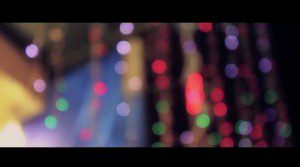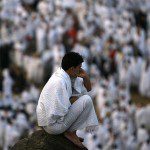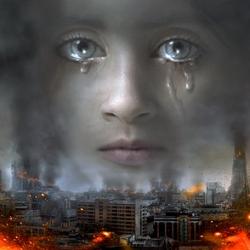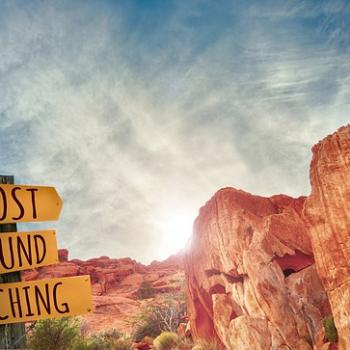This article comes on Day Five of our special Altmuslim/Patheos Muslim Ramadan #30Days30Writers blog project, in which we are showcasing the voices of 30 Muslim leaders, activists, scholars, writers, youth and more (one on each day of Ramadan) as part of our commitment to own our own narratives and show how we are one Ummah, many voices. To demonstrate how our Ramadan experiences are shared yet unique to each of us.
This Ramadan marks my second since my wife lost her battle with cancer. I was afraid it was going to be as empty and as painful as my previous Ramadans. For me, Ramadan wasn’t so much of a spiritual oasis where you purify yourself or work to strive closer to God. No. For me it was an agony – something to be endured.
The reasons for this are multifaceted.
First and most obvious is that I was born and raised in the West. The concept of fasting was not just foreign, but hunger itself had probably not marked my family’s door since that first winter when one of my ancestors came off of the Mayflower. So the idea of fasting was not something I was used to and thus after accepting Islam, I found it difficult to make it through a month-long fast. I cheated often and made excuses at other times. I was never proud of myself, but I was not used to it.
The next reason, which dovetails into the one above, is that as a convert to this religion I found Ramadan to be a very lonely time. My late wife was a convert too, and she also complained about it often. Ramadan is a spiritual holiday, but it is also a very communal holiday. Families cook together, plan activities together, go to the mosque for special prayers and so on. As a convert I was always on the outside; once I had gotten the big grins, handshakes and slaps on the back, nobody told me how to make the most of Ramadan. Nobody became close enough to me to invite me to Ramadan events.
How can you participate in your community if there is nobody to welcome you into it and nobody to explain it to you? Thus, many Ramadans came and went with no support and no information on what programs our local mosque had and no invitations to meet or break our fast with local congregants. Ramadan was a time of isolation from the community and a time of hunger — a combination that was never fun.
Later, when my wife became sick with the cancer, Ramadan became difficult because I had to take care of her. Her illness meant that she did not have to fast; but as her caregiver, I had to fast while also feeding her. And later, when she became much sicker, it meant that I had to bathe her, carry her, change her bandages, give injections, etc.
We tried hard to make the month happy for our son. Every Friday he would get a small gift (crayons, markers, coloring books) so that the holiday meant something special to him. And then of course on Eid-al-Fitr, we exchanged gifts like it was Christmas. Thus our son looks at Ramadan as a special time. But for me, the burden of making the holiday special for our son, which I willingly carried, ended up making the holiday that much harder.
Last year was the first Ramadan since my wife passed. The whole year leading up to Ramadan I was numb. Things passed with a blur. I honestly do not remember last Ramadan. In fact, I really don’t remember anything about the entire last year . I worked hard to just keep things moving. Drive my son to school. Get him to violin and soccer practice. Make something for dinner. Cry uncontrollably. Repeat.
So, it was with a great deal of trepidation that I greeted Ramadan this year. My personal history with this biggest of Islamic holidays was against me. But as Ramadan approached I felt something shift, I realized that Ramadan and the fast that accompanies it is a purifying force. An opportunity to begin again and fix myself spiritually – this mirrors the new life I am determined to build now that my wife is gone and not missing any opportunities that may come my way in my life.
So my attitude towards the holiday changed. My son and I put up Ramadan lights (inside the house so as not to freak out the neighbors), and we went to the stores and farmers markets and stocked up on ingredients for suhoor and iftaar meals.
We recently moved to a new home in a new neighborhood, and I purposely went out of my way to find a mosque I was reasonably comfortable with. I collected information on mosque iftaars and also on the evening taraweeh prayers.
On the first night of Ramadan, my son and I went and stood up with our brothers and sisters at the mosque and offered those taraweeh prayers. I felt the stress bleed out of my heart. Between rakats, I made fervent du’a to God to help me with my persistent loneliness and to help me with moving my life forward.
And do you know what? As I knelt in prayer, even though people surrounded me, I suddenly felt I was alone with God. A feeling of complete peace came over me and I felt years of stress and worry lift from me. I cannot explain it other then to be thankful for it. I left those prayers feeling as though the stress and cares I have struggled under for months and months had been washed away.
I felt happy and found myself smiling and joking with my son as we headed home. That feeling stayed into our first suhoor, and I hope will continue through the whole month.
I have no illusions; I still will struggle with my loss going forward. I will have days of frustration and loneliness ahead. But this Ramadan feels more like a new start then at any other time since my wife passed. And, I feel like I have reached a level of maturity with my Islam. I worry less about fitting in and more about making the faith and community fit me.
Ramadan is about so many things. Purification. Re-aligning our souls towards God. Charity. Community. This year after having gone through the fires of loss and change in my life and having been burned badly by it, Ramadan means a new beginning and new opportunities to be a better Muslim, and more importantly to be a better human being.
Alan Howard is an Operations Manager with Cisco Systems out of Atlanta GA. He is heavily involved in interfaith dialogue work and community activism. He enjoys hiking, kayaking and international travel. He is a contributor to Salaam, Love: American Muslim Men on Love, Sex and Intimacy.












